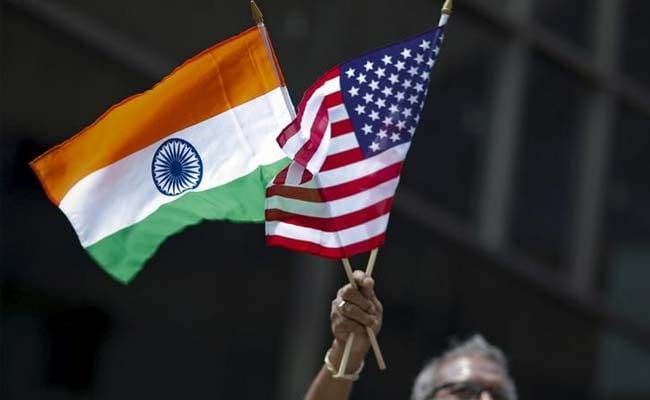
A top American commander has said that there is zero loss of momentum in the India-US defence relationship despite the Ukrainian crisis.
"All (bilateral and multilateral exercises) are on schedule, no impact. Malabar this year is on track. MILAN happened as advertised. Every single one of our efforts is on track with zero loss of momentum," Admiral Samuel Paparo, Commander of the United States Pacific Fleet told a group of foreign journalists here.
In a round table organised by Foreign Press Center here, the four-star commander of the United States Pacific Fleet said that the momentum of India- the US defence ties continues in the aftermath of the Ukrainian crisis.
"In fact, the week of the invasion I happened to be in Visakhapatnam at MILAN 22, where we were operating profoundly together and where we had a number of Quad events where the Quad navies were getting together and talking about our shared interests and our shared values moving forward, understanding that India is in a unique position as a function of its vestigial security arrangements," he said in response to a question. Quad - comprising Japan, India, Australia and the United States - is not an alliance but a grouping of countries driven by shared interests and values and interested in strengthening a rules-based order in the strategically-important Indo-Pacific region.
The four countries had in 2017 given shape to the long-pending proposal of setting up the "Quad" or the Quadrilateral coalition to counter China's aggressive behaviour in the Indo-Pacific region.
"I think that understanding and appreciation exists, but not being able to speak at the political and the diplomatic level, I will tell you that my commander's guidance to... I have two commanders, Admiral Chris Aquilino and Admiral Mike Gilday. Their guidance to me in terms of finding opportunities to operate together and to build interoperability as able – and this is not a part – a de jure part of the Quad itself, but is just normal partnering operations – has lost zero momentum," Admiral Paparo said.
"And guidance to me is unchanged, which is to find profound means by which we can partner together to build the ability to coalesce together quickly in the case that we were to enjoin each other to a coalition that would require combined operations," the American admiral said.
The Admiral said that his own partnership with the Indian navy, and his own personal partnership with Admiral Radhakrishnan Hari Kumar Chief of the Naval Staff.
Head of the Pacific fleet for a year now, he said during this year despite COVID-19 restrictions, he travelled to Japan, South Korea, Singapore, the Philippines, to India. He is shortly scheduled to have a trip to Singapore, Thailand, and to Australia in the weeks ahead.
Responding to a question on the Indo Pacific Strategy of the Biden administration, he said he has never seen greater convergence between the United States and Japan within the alliance in terms of a realisation of the strategy and the actions moving forward.
Admiral Paparo said that he is wary of some of the security-oriented operations throughout the Belt and Road and the String of Pearls.
"I'm equally wary of the debt trap elements of the Belt and Road Initiatives and the extent to which they can later be exploited for exclusive security arrangements," he said.
"As you know, the Indian Ocean is key geography in the world, with so much of the world's commerce travelling through the Indian Ocean and as such a key centre for world commerce, world creativity, and population. I am always wary of these arrangements, as we've seen in Hambantota, as we've seen in Gwadar, as we see in Djibouti. And I always do find that alarming," he added.
(Except for the headline, this story has not been edited by NDTV staff and is published from a syndicated feed.)
Track Latest News Live on NDTV.com and get news updates from India and around the world

